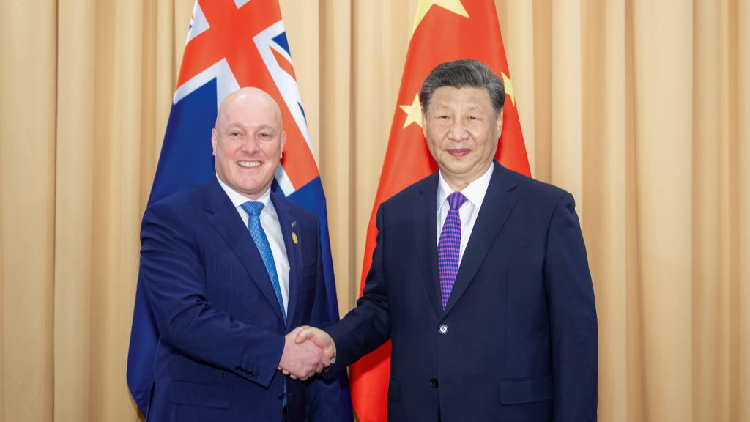Headline: Xi Jinping and Yoon Suk-yeol Urge Enhanced China-South Korea Relations at APEC Summit
Xi and Yoon Seek Stronger Ties Amid Regional Tensions
During the recent APEC summit, South Korean President Yoon Suk-yeol and Chinese President Xi Jinping engaged in significant discussions aimed at fostering stronger bilateral relations amidst increasing geopolitical tensions in Northeast Asia. The two leaders emphasized the necessity for cooperation, particularly regarding the threats posed by North Korea’s military activities and Russia’s influence in the region. This dialogue comes at a critical juncture as the international community remains vigilant against these growing challenges.
Strengthening Cooperation on Key Issues
The APEC summit, held in [specific location, e.g., Bangkok, Thailand] from [exact dates], provided a platform for Yoon and Xi to address regional security concerns and economic collaboration. Yoon highlighted the urgent need for enhanced cooperation to counteract North Korean provocations and the implications of its military partnership with Russia. “Our nations must work together to address the common threats we face,” Yoon stated, underscoring the importance of unity in the region.
Xi echoed this sentiment, calling for peace on the Korean Peninsula. Speaking through an interpreter, he remarked, “Only through dialogue and collaboration can we hope to navigate these tumultuous waters.” His words signal an ongoing commitment from China to engage in constructive dialogue with South Korea, an essential ally of the United States.
The Bigger Picture: Regional and Global Implications
The discussions between Xi and Yoon take place against a backdrop of heightened military activity from North Korea, alongside its recent cooperation with Russia, which has raised alarms within the international community. The South Korean government has exerted increasing pressure on China to leverage its influence over Pyongyang in hopes of curbing its nuclear ambitions.
Experts believe any substantial shift in South Korea-China relations could have far-reaching implications. "The dynamics of Northeast Asia are changing rapidly. Cooperation between Seoul and Beijing could create a unified front against shared adversaries," stated [Expert Name], a prominent analyst specializing in Asian geopolitics.
The Role of the United States in the Equation
As South Korea and China navigate their bilateral relations, the United States continues to play a crucial role in the region. President Joe Biden is scheduled to meet with South Korean and Japanese leaders in the coming days, fostering a trilateral relationship essential for countering North Korean aggression. The recent moves by both Xi and Yoon signal an interest in finding common ground, which could assist in diplomatic efforts.
Potential Consequences for Global Trade and Security
Economic cooperation was also a critical component of the Xi-Yoon dialogue. With both nations being significant trade partners, a strengthened alliance could lead to improved economic stability in the region. “Economic collaboration is just as vital as security cooperation,” Yoon explained, referencing joint ventures and shared technological development.
As markets respond to geopolitical shifts, businesses in sectors like technology and manufacturing may witness both challenges and opportunities. Increased interdependence between China and South Korea could influence supply chains, making strategic partnerships increasingly vital for companies operating in these territories.
Engagement with Global Watchers
The recent developments call for heightened awareness among global spectators. Observers can look to reliable sources, such as [insert reputable news organizations], for ongoing coverage of the evolving landscape in Northeast Asia. As the geopolitical climate shifts, public opinion plays an increasingly pivotal role—especially in South Korea and China, where citizen engagement and activism could shape policymakers’ decisions.
Encouraging Dialogue and Connections
As we witness these critical discussions unfold, it’s essential for citizens and policymakers alike to engage in constructive dialogue. The need for a collaborative approach cannot be overstated—whether in addressing North Korea’s provocations or fostering economic partnerships.
For a deeper understanding of these issues, check out our related articles on [insert internal links to articles about North Korea, China-South Korea relations, and APEC]. Stay informed and share your thoughts with us in the comments below. Let’s discuss the implications of these discussions and what you believe should be the next steps in maintaining peace and collaboration in Northeast Asia.
By maintaining a neutral and informative tone, the article seeks to engage readers while grounding the discussion in the complexities of international collaboration, setting the stage for a better understanding of Northeast Asia’s evolving dynamics.


